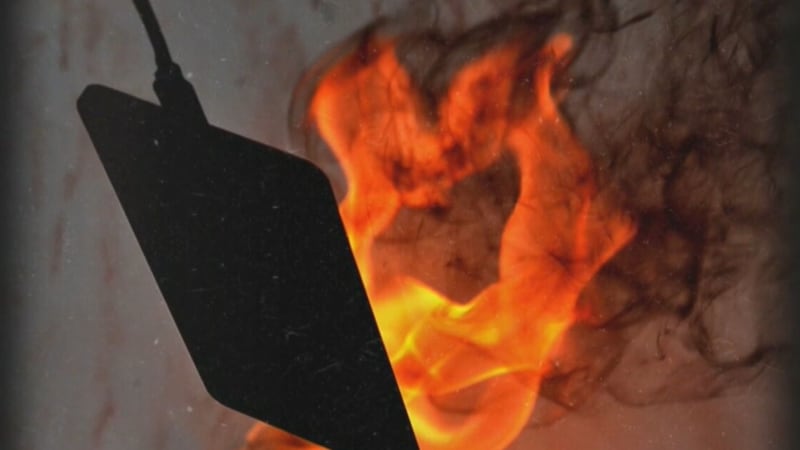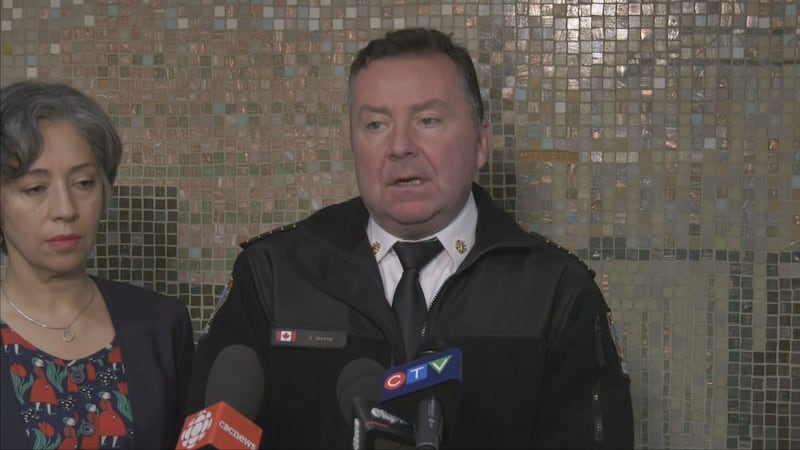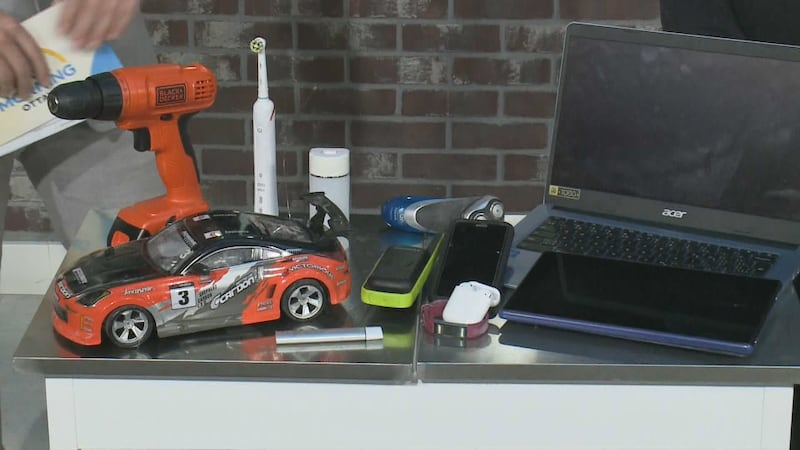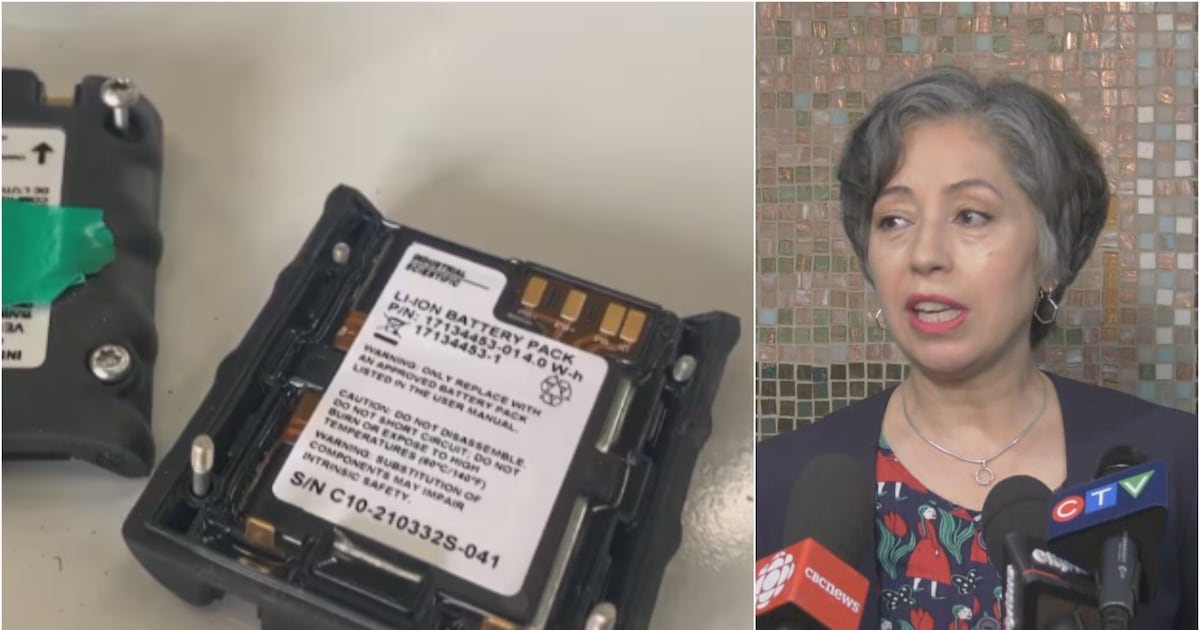Toronto Fire Services Chief Jim Jessop is calling on both provincial and federal governments to introduce regulations on the use of lithium-Ion batteries.
Fires and explosions involving unregulated and uncertified lithium-ion batteries, including those used in e-bikes and e-scooters, have spiked in Toronto, prompting one city councillor to call for increased rules to address the public fire safety risk they can pose.
On Thursday afternoon, Toronto City Council considered and adopted a member’s motion by Coun. Alejandra Bravo that recommends asking the provincial and federal governments to step up oversight of these devices.
 Lithium-ion batteries are lightweight and very powerful, and also dangerous if not stored, charged and used correctly. Lithium-ion batteries are lightweight and very powerful, and also dangerous if not stored, charged and used correctly.
Lithium-ion batteries are lightweight and very powerful, and also dangerous if not stored, charged and used correctly. Lithium-ion batteries are lightweight and very powerful, and also dangerous if not stored, charged and used correctly.
The Government of Canada is responsible for regulating the supply and import of unregulated and uncertified lithium-ion batteries as well as devices that contain them, while the province, under the provisions of the Ontario Fire Code, has jurisdiction over rules surrounding the storage of them indoors along with charging infrastructure.
This move comes as a result of a spike in incidents involving lithium-ion batteries in the city, some of which caused significant property damage as well as injuries and even death.
Toronto Fire, which has launched a multilingual fire safety campaign aimed at educating Torontonians on the risks associated with lithium-ion batteries, says it has recorded a nearly 600 per cent increase in fires linked to these power sources from 2020 to 2024.
As of September, the service said it responded to 68 fires related to lithium-ion batteries, 39 of which were connected to those in mobile devices like e-bikes and e-scooters.
 Toronto Fire Chief Jim Jessop Toronto Fire Chief Jim Jessop speaks during an Oct. 9 news conference on increasing safety with it comes to lithium-ion batteries.
Toronto Fire Chief Jim Jessop Toronto Fire Chief Jim Jessop speaks during an Oct. 9 news conference on increasing safety with it comes to lithium-ion batteries.
On Thursday morning, Toronto Fire Chief Jim Jessop joined Bravo, who chairs the Economic and Community Development Committee, for a news conference at City Hall to drum up support for the motion, which is titled Mitigating Fire Risks with Strong Lithium-ion Battery Regulation.
“(Lithium-ion battery incidents are) the fastest-growing fire safety threat in Toronto,” Jessop said.
“Right now, there is no regulation for the type of batteries you can order online and put into a mobility device—they can be damaged, they can be overcharged. And once the batteries go into thermal runway there’s only 90 seconds before a room or a subway car can be engulfed in toxic smoke.”
Bravo said “strong regulation” is needed when it comes to lithium-ion batteries from both federal and provincial partners, not just guidelines.
Currently, Health Canada and Transport Canada only recommend that e-mobility devices and their batteries be compliant with the Standard for Electrical Systems for Personal E-Mobility Device and Standard for Safety for Electrical Systems for e-Bikes.
“My motion is about having City Council be on the record with the Fire Chief calling on the Province and Feds, saying we need action now. The market has changed quickly, and regulation hasn’t kept up,” said Bravo, who represents Ward 9 – Davenport.
‘This isn’t just a Toronto problem’: fire chief
“This isn’t just a Toronto problem – it’s happening in metro cities across North America. I’ve spoken with other fire chiefs, and we know that people need to come together who can take action on regulation,” Jessop added.
Cycle Toronto is also supportive of the call for greater regulation as well as Bravo’s motion, saying that it should “play a crucial component of Toronto’s micromobility strategy.”
“Concerns about the perceived safety risks of micromobility vehicles on our streets receive a disproportionate amount of public attention compared to the actual risks these vehicles pose to other vulnerable road users and to the number of people killed or seriously injured by drivers and cars. Unfortunately, this has overshadowed the real hazards posed by poorly regulated lithium-ion batteries and electrical systems,” Michael Longfield, Cycle Toronto’s executive director, said in a letter of support.
“Too much of Toronto’s enforcement has been focused on the end users operating vehicles that can be easily (and cheaply) purchased regardless of their legality on public roads and bike lanes. Refocusing enforcement efforts at the retail level would be a more efficient and effective use of limited resources to better meet the safety and transportation needs of Torontonians.”
Further, Cycle Toronto is calling on the federal government to make compliance with these lithium-ion battery standards mandatory across the Canadian industry and for all imports into the country.
 Lithium-ion battery products Several products that contain lithium-ion batteries. (CTV Your Morning Ottawa)
Lithium-ion battery products Several products that contain lithium-ion batteries. (CTV Your Morning Ottawa)
Lithium-ion batteries, which aren’t inherently dangerous, pack a lot of power in a compact space, increasing the risk that they could catch fire or blow up, especially when they’re unregulated and/or uncertified.
Some of the most common reasons why lithium-ion batteries ignite are due to overheating, electrical failure, or damage. Challenges with these devices often arise when they aren’t used properly or when they’re unrated and unaccredited.
Lithium-ion batteries, which are used to power smartphones, laptops, micro-mobility devices like electric scooters, e-bikes, and hoverboards, as well as e-cigarettes, smoke alarms, and toys, among other things, may also experience a phenomenon known as thermal runaway, which occurs when they heat up over time and ignite days or even weeks later.

